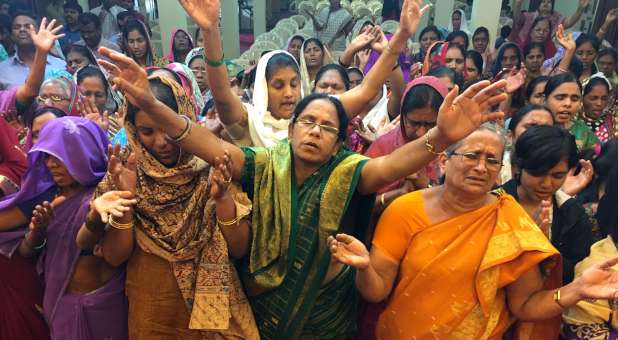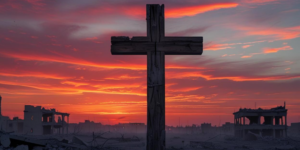8 Ways Global Christianity Is Different From America’s Church
This week, I’m on my 132nd international mission trip. I’m traveling in Central Asia with a group of Russian-speaking immigrants who live in the United States. We’ve been encouraging local Christians in two countries where it’s not easy to live for Jesus. And as I’ve eaten local food, visited local churches and listened to the struggles of local pastors, I am seeing the world through their eyes.
My American friends often ask me how the church overseas is different from ours. Of course that depends on which part of the world I’m visiting. But I can say unequivocally that (1) most Americans have no idea how blessed we are, and (2) the global church struggles in ways we don’t understand.
This week while traveling in a van on bumpy roads, I asked my Slavic team members how the global church differs from the American church. They all grew up in the former Soviet Union, and they came to America to flee religious persecution. Together we compiled this list of differences:
- Christianity has a high cost. In most countries of the world there are negative consequences for anyone who follows Jesus. Some lose jobs or are denied promotions. Some experience harassment, eviction, fines or arrest. And a growing number of believers worldwide are martyred—mostly because Christianity is growing in hostile areas. Jesus’ words in John 15:19 are so relevant to the majority of Christians today: “But because you are not of the world … the world hates you.”
- Bibles, Christian books and theological education are rare. Americans have access to a treasure trove of spiritual resources. We have seminaries, Bible colleges, unrestricted Christian broadcasting, unlimited access to Christian books and music, and more Bibles than we can read. But in many of the countries I visit, one Christian book is treated like a prized commodity.
Are you thankful for your copy of the Scriptures? The nation of Turkmenistan did not get a Bible in its native language until 2016—yet there are huge challenges to distributing it in a country that is closed to the gospel. Uzbekistan did not get access to the full Bible until 2018.
- The global church doesn’t rely so much on buildings. I met a pastor from China who told me that he had to limit his congregation to 75 people because they had to meet in a small office. The government did not allow him to build a sanctuary. But because so many people were being converted, he had to start a new church every four months. I have preached in churches that meet in apartments, stores, huts with thatched roofs, caves, front yards, warehouses and on hillsides.
- There are restrictions on what can be preached. In several countries I’ve visited recently, American preachers have been permanently banned because they said things from a pulpit that are offensive to other religions. In many countries, local governments monitor what is preached in churches. Remember that the next time you rant on social media to protest whatever you want. I hope you value your right of free speech.
- Economic hardship makes ministry difficult. Many of my African pastor friends make less in one year than I make in a month. I know a pastor in Malawi who only gets the equivalent of 50 cents in his weekly church offering. In the United States, we base our church budgets on tithes from faithful donors. But how does a church in Uganda operate when members put chickens or bags of rice in the offering? Financial stress is one reason many pastors overseas suffer from burnout.
- There is a serious lack of emotional support. In the United States we refer people in church to a variety of counseling resources. We have grief support, divorce care, family counseling, marriage counseling and rehabilitation centers for addicts or domestic violence victims. Many of these programs are non-existent overseas. People simply survive—or die prematurely because healing isn’t available.
- Spiritual hunger is intense. No matter where I go in the developing world, I find that people are desperate for God’s presence. At one church I preached at in Barranquilla, Colombia, more than 1,000 people packed a church for a 6 a.m. service! When I preached at a church in rural Uganda, people who couldn’t find a seat in the church put chairs outside the windows and sat in the hot sun to hear God’s Word. That would never happen in our comfortable American bubble.
- Most global churches rely on the supernatural power of God. No matter where I go overseas, Christians line up for prayer for healing. Miracles are common. And it’s normal for someone to receive deliverance from a demon—with screaming—in a Sunday service. In the United States, we prefer strobe lights with wide screens and cool graphics instead of unscripted bursts of Pentecostal power. We have our schedule to follow. We want things to be neat and tidy. We don’t want the sudden, messy interruptions of the Holy Spirit.
I’ll always be an American, but I carry the global church in my heart. We have so much we can give them. But more than that, they have so much to teach us.







































